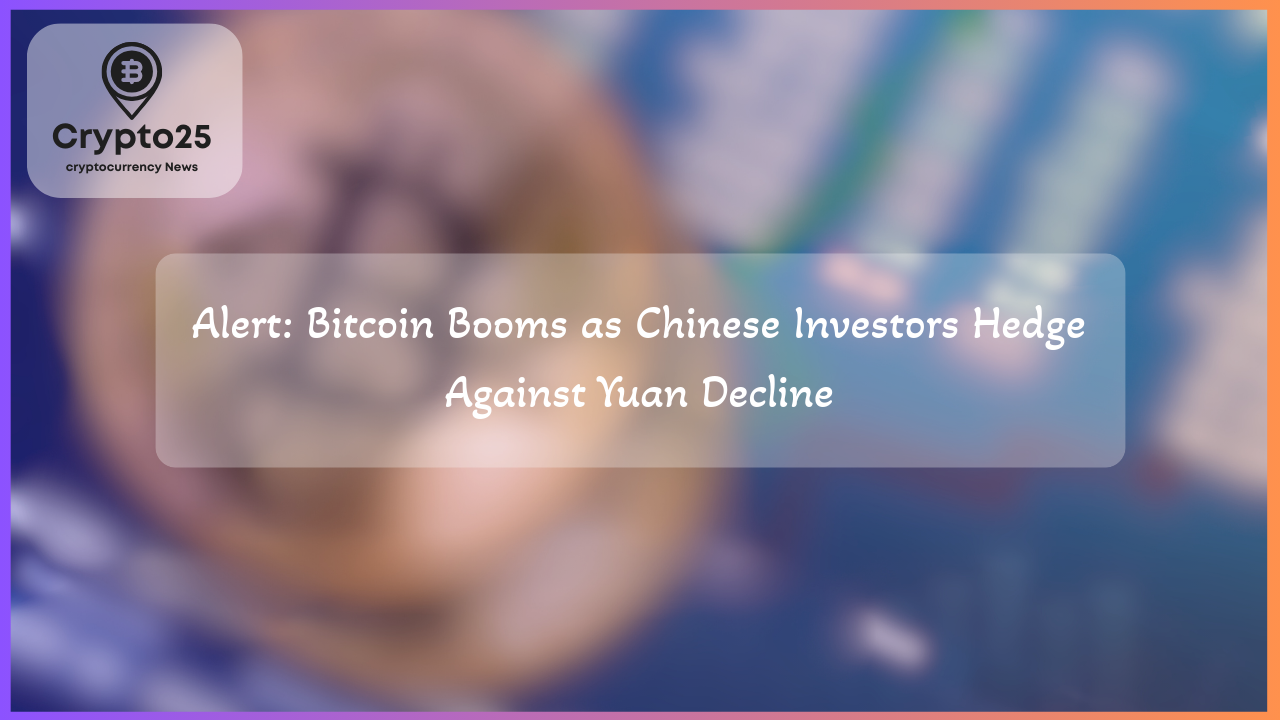
The impact of China’s policies and economic movements on Bitcoin has consistently intrigued the crypto community. With recent discussions on the trade war and yuan devaluation, the conversation around Bitcoin as a hedge for global investors is reigniting. Arthur Hayes, co-founder of BitMEX, believes such macroeconomic events can serve as hidden catalysts, potentially influencing Bitcoin’s valuation significantly in the coming years.
## The Influence of China’s Economic Decisions on Bitcoin
China has long played a pivotal role in the cryptocurrency ecosystem. Historically, the country contributed substantially to Bitcoin’s market activity, both in mining and trading. As of late, economic factors such as tariffs and monetary policies have shone a spotlight on Bitcoin’s appeal as a hedge for Chinese investors.
For example, when the Chinese yuan hit a notable low of 7.31 against the US dollar in 2023, it primarily stemmed from fears over U.S.-imposed tariffs. This depreciation of the yuan sparked concerns among investors about inflation and the potential loss of purchasing power. Hayes argues that increased Bitcoin adoption in China could emerge from these fears, just as it did during earlier periods of economic distress in 2013 and 2015.
During previous monetary challenges, Bitcoin served as an alternative to safeguard assets. For instance, in 2013, as the People’s Bank of China (PBOC) signaled monetary easing, Bitcoin caught the attention of domestic investors, bolstering its value against a backdrop of yuan fluctuation. A similar trend repeated in 2015 when a deliberate yuan devaluation drove significant interest in digital currencies.
| Title | Details |
|---|---|
| Market Cap | $1.2 Trillion |
## Yuan Devaluation and Bitcoin: Historical Patterns
The yuan’s pattern of devaluation often correlates with Bitcoin price rallies, a trend confirmed in China’s financial history. In August 2015, the PBOC devalued the yuan by over 3% in an effort to stimulate exports amidst growing economic strain. In response, Bitcoin surged, rising from $200 in mid-August to $500 by November. This period highlighted Bitcoin’s growing role as a preferred alternative investment for Chinese investors during economic turbulence.
Fast forward to 2023, and the same concerns around yuan weakness have resurfaced. Although China’s regulatory framework for cryptocurrencies has tightened, the demand for Bitcoin remains evident, particularly among wealthy investors eager to move assets beyond the government’s reach. Hayes believes this dynamic presents a significant opportunity for Bitcoin to gain further traction as a financial hedge for Chinese capital.
However, Bitcoin isn’t the only asset benefiting from yuan-related uncertainties. Gold continues to be a favored choice among Chinese investors due to its stability and historical usage as a hedge against inflation. Still, Bitcoin’s portability and potential for rapid price appreciation offer unique benefits that distinguish it from traditional assets.
## Could Bitcoin Flourish Amid Economic Uncertainty in China?
The trajectory of Bitcoin amidst China’s economic shifts remains a crucial conversation in the broader crypto market. While regulations have curbed cryptocurrency trading in the country, Hayes argues that Bitcoin has the potential to thrive under specific macroeconomic conditions. For Bitcoin to regain its 2015-like relevance, factors such as an amplifying trade war, yuan devaluation, and evolving public sentiment around traditional assets will play a critical role.
Notably, Hayes pointed out that Chinese monetary policy trends, whether stemming from inflationary pressures or geopolitical dynamics, often ignite a narrative where Bitcoin becomes the ideal alternative investment. These scenarios allow the crypto market to gather momentum and demonstrate its resilience amidst global economic uncertainties.
Bitcoin’s ability to thrive in adverse environments underlines its unique position as an asset class influenced heavily by global policy shifts. As China continues to navigate ongoing trade conflicts and monetary challenges, Bitcoin stands ready to play a prominent role in investors’ diversification strategies, carrying echoes of its historical performance.
